16+ SAMPLE Bulk Sale Agreement
-
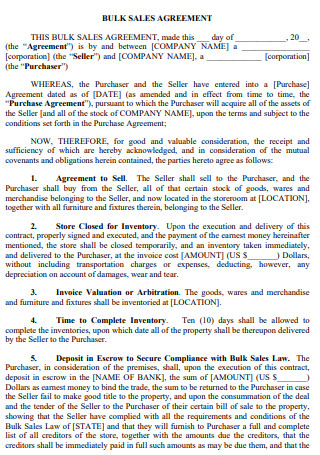
Bulk Sale Agreement
download now -
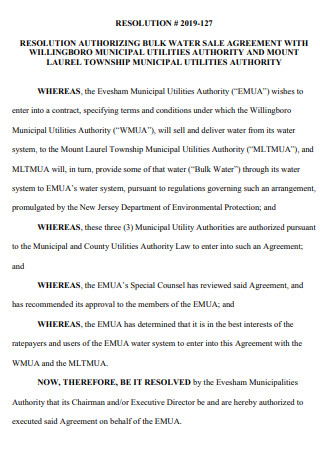
Bulk Water Sale Agreement
download now -
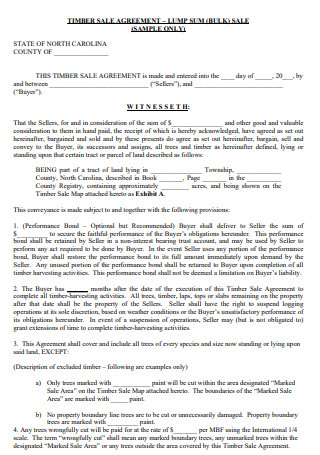
Timber Bulk Sale Agreement
download now -
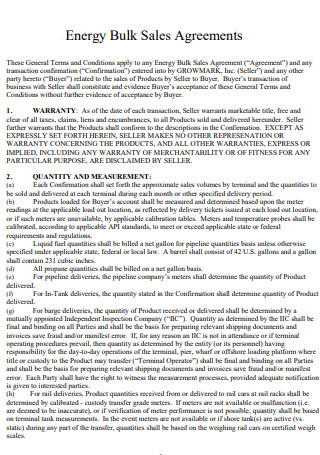
Energy Bulk Sale Agreement
download now -
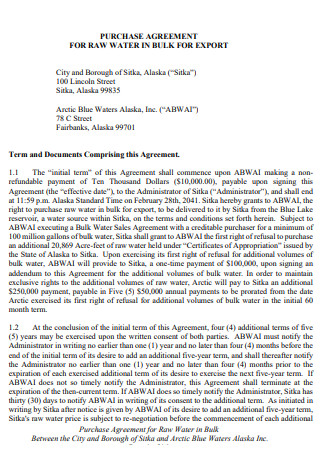
Bulk Purchase and Sale Agreement
download now -
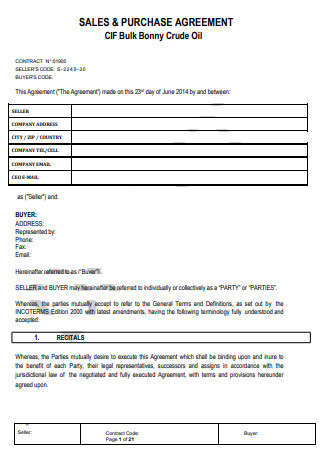
Bulk Oil Purchase and Sale Agreement
download now -
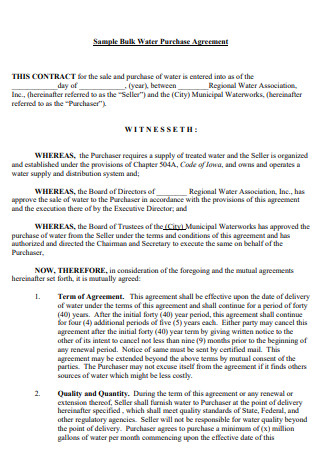
Bulk Sale Contract Agreement
download now -
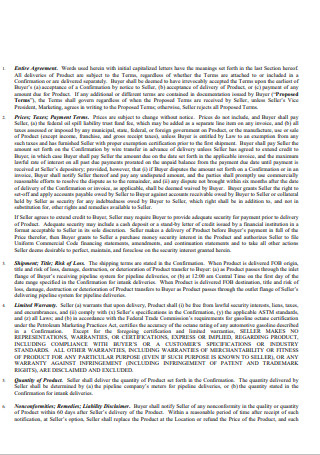
Bulk Sale Petroleum Product Agreement
download now -
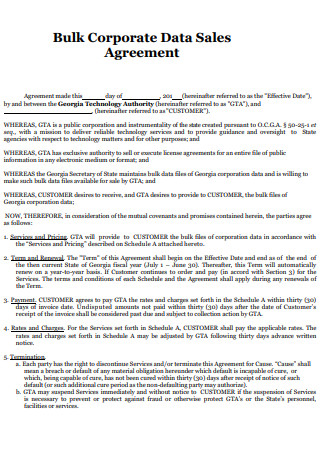
Bulk Corporate Data Sale Agreement
download now -
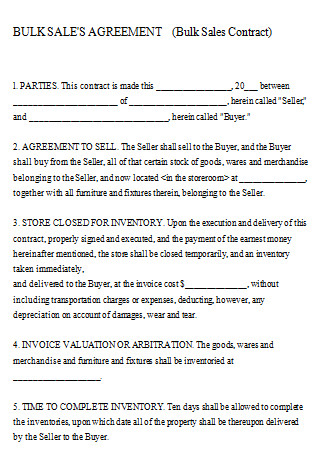
Sample Bulk Sale Agreement
download now -
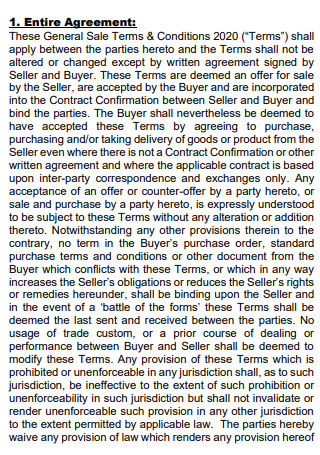
Bulk Trading Sale Agreement
download now -
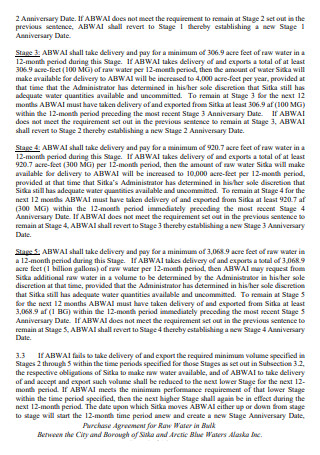
Simple Bulk Sale Agreement
download now -
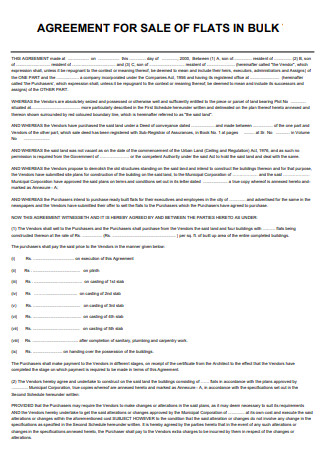
Bulk Sale of Flats Agreement
download now -
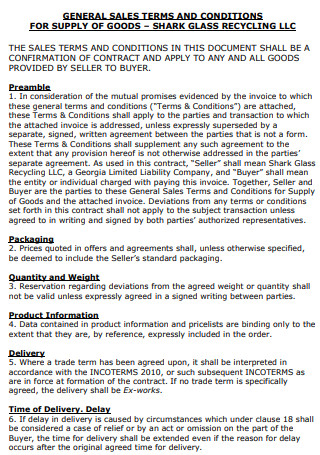
Bulk Sale of Goods Agreement
download now -
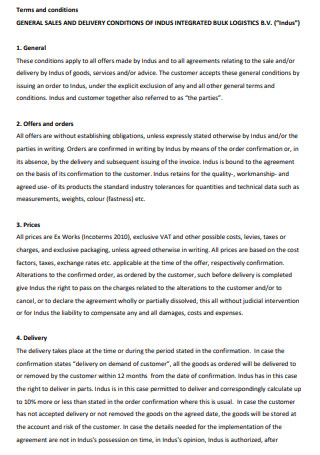
Integrated Bulk Sale Agreement
download now -
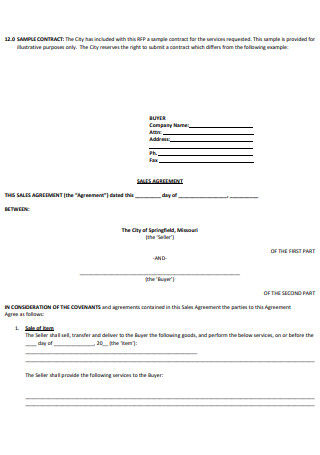
Formal Bulk Sale Agreement
download now -
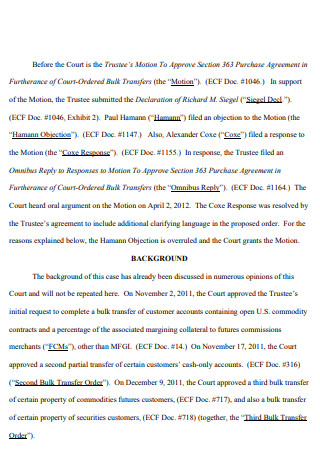
Standard Bulk Sale Agreement
download now
FREE Bulk Sale Agreement s to Download
16+ SAMPLE Bulk Sale Agreement
What Is a Bulk Sale Agreement?
Advantages of Sales Agreement
Wholesaling as an Alternative Choice
How to Write a Bulk Sale Agreement
FAQs
What does a bulk sale mean?
What is a bulk sale transfer?
What is the difference between wholesalers and retailers?
What Is a Bulk Sale Agreement?
A bulk sales agreement specifies the terms and circumstances for transferring a considerable portion of the seller’s supplies, products, and the like. The contract should be for the transfer of corporate assets. One of the distinguishing features of a bulk sales transaction is that the agreement is for the transferring of inventory that is not normally used in the seller’s business. The bulk sale agreement definition is made simpler for you to understand and comprehend this type of document. If you are still puzzled, then you can refer to the available documents found on this site as references for when you are making your own.
Advantages of Sales Agreement
Now that a bulk sale agreement has been defined for you, you may still not be fully convinced to try creating one for your business venture. Now before you decide to perform a bulk sale agreement cancellation, you should go over this curated list to be aware of how beneficial a sales agreement could be when you purchase in bulk. Read each point carefully to ensure you did not miss anything significant and be aware of the advantages and what you may miss out on if you don’t have one.
Wholesaling as an Alternative Choice
As a result, wholesale markets play an important role in the vertical coordination of food markets, balancing supply and demand and allowing price creation. Their involvement lowers marketing costs per unit, maintains a stable market for local commodities, and fosters increasing output and productivity. Being a wholesaler helps you to reach a big consumer base and have access to a varied selection of venues. Offering your goods wholesale offers a bigger audience to access your offerings, allowing you to swiftly build your business. This may generate interest in your product and make you appealing to retail outlets, which will be more willing to carry your product if they realize that there is a substantial audience for your items.
How to Write a Bulk Sale Agreement
Preparing a bulk sale agreement may be tricky if you are new to the entire process of owning a business that purchases in bulk. But by reading this article, you will have significant knowledge of the steps of writing a bulk sale agreement. As mentioned and if you have only recently opened your business and have no idea what the bulk sale agreement format is, then you can refer to the provided bulk sale agreement example as an additional means of reference.
Step 1: State Parties Involved
For the first step that you must do, you need to indicate the parties involved in the agreement. Make sure to include the professional and complete company names of the buyer and seller within the document. Don’t forget to include other relevant details of both businesses such as the official address or where the office is located, the active phone numbers, and even the incorporation of logos. Fact check that the spelling is free of error or typos otherwise you would need to do some rush editing and changes before sending the document over to the other party for signing.
Step 2: Clause of the Agreement
For this section, you will need to define the clause regarding the bulk sale agreement. A clause in a contract is a provision that is connected to the overall agreement. Clauses often outline each party’s duties under the agreement. A clause can either mandate or prohibit an activity. As part of the clause, you can signify which responsibilities each party is designated to act on otherwise, not having it in writing may leave the air open to interpretation. Which could be misunderstood and wrongfully done by either party.
Step 3: Details of Goods to be Sold
This section defines the sale of the products or goods, along with the purchase price, the payment procedure, and the delivery process. Describe the commodities, merchandise, or materials to be sold, including quantities and unit prices. The whole cost of the items, including any deposits or modifications Establish a payment method or protocol for when an invoice should be delivered, as well as payment conditions and a deadline. Determine when and where the items will be delivered from the supplier to the customer.
Step 4: Warranties
Most bulk sale agreements include a clause that represents the seller’s and buyer’s promises to the contract’s specific facts. Typically, both the seller and the buyer represent that their companies are in good standing under state law. The seller assures that the company assets are in excellent and marketable condition. The buyer confirms that he has the authority to carry out the contract’s duties and that he has had the chance to inspect the assets. Other terms that express any pre-negotiated agreements between the buyer and seller may be included in the contract.
Step 5: Terms of Issues and Incidents
The transfer of liability for compensating the risk of damage to or loss of goods after a sale has been completed but before delivery is known as risk of loss. If the seller carries the risk of loss during transportation, the seller is obligated to supply alternative products if the items are lost or damaged in transit. Make sure to add this detail within the bulk sale agreement to ensure that both parties are protected in the rise of issues and incidents. Additional features like dispute resolution, governing laws, liquidated damages, or modifications can also be incorporated.
Step 6: Secure Signatures
The final part of the document would have a portion where signatures are exchanged to legalize the agreement. Securing signatures from both parties is important because it signifies that both understood and comprehend the contents of the document. Further questions and clarifications would be raised before signing the document as this means that there are changes to be made so have everything cleared up before signing the agreement. This goes without saying that you should leave a portion for the signatures as well as the written names and even the positions of the people who left their signatures.
FAQs
What does a bulk sale mean?
A bulk sale definition is the sale, transfer, or assignment of company assets, in whole or in part, by a person obligated to collect sales tax. Business assets include any assets directly relevant to the operation of a business, such as tangible personal property, real estate, and other items. This includes the presence of bulk sales rules, which are intended to protect creditors from firms that sell assets to avoid paying creditors and, in certain situations, to prohibit enterprises from dodging sales taxes. The Uniform Commercial Code governs bulk sales laws. Although most states have removed bulk sales laws, some still apply.
What is a bulk sale transfer?
The bulk transfer legislation protects business creditors. It states that if a buyer of a firm tells the seller’s creditors in advance that it is purchasing the seller’s assets, the buyer will not be responsible to those creditors for the seller’s debts and obligations. Any person who violates any provision of the bulk sales legislation shall, upon conviction, face imprisonment for not less than six months nor more than five years, or a fine of not more than five thousand pesos, or both such imprisonment and punishment, at the discretion of the court.
What is the difference between wholesalers and retailers?
A wholesaler is a person or corporation that distributes things in large quantities to numerous outlets or shops for resale, either directly or through a middleman. Wholesalers may offer their items at a lesser price since they sell in volume, which minimizes handling time and expenses. They often deliver big quantities of items, but can also accept orders for lesser quantities. A retailer is someone or a business that sells things directly to clients for profit. The store may be the product’s producer or may obtain related items through a distributor or wholesaler. The things they offer will be more expensive than those sold by a wholesaler.
Now that a sales contract template has been provided for you, you won’t have to worry about starting from scratch otherwise, you may spend all your important time crafting one. But with the utilization of our available agreements, you can instead focus your time on much more important matters such as the content, the specifications, and other meticulous details. Use the available templates provided which allow you to edit it at your convenience so you won’t have much stress from already handling a busy business or company.
